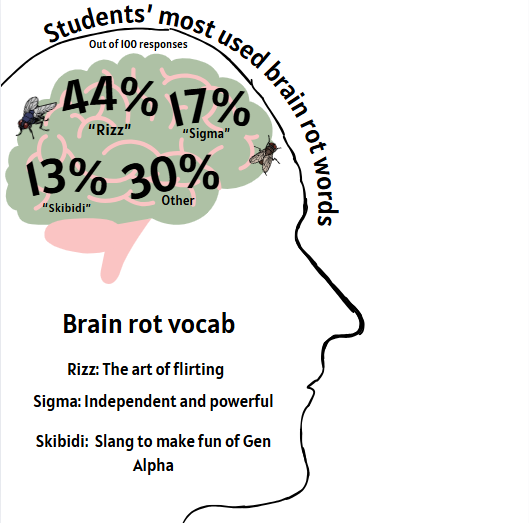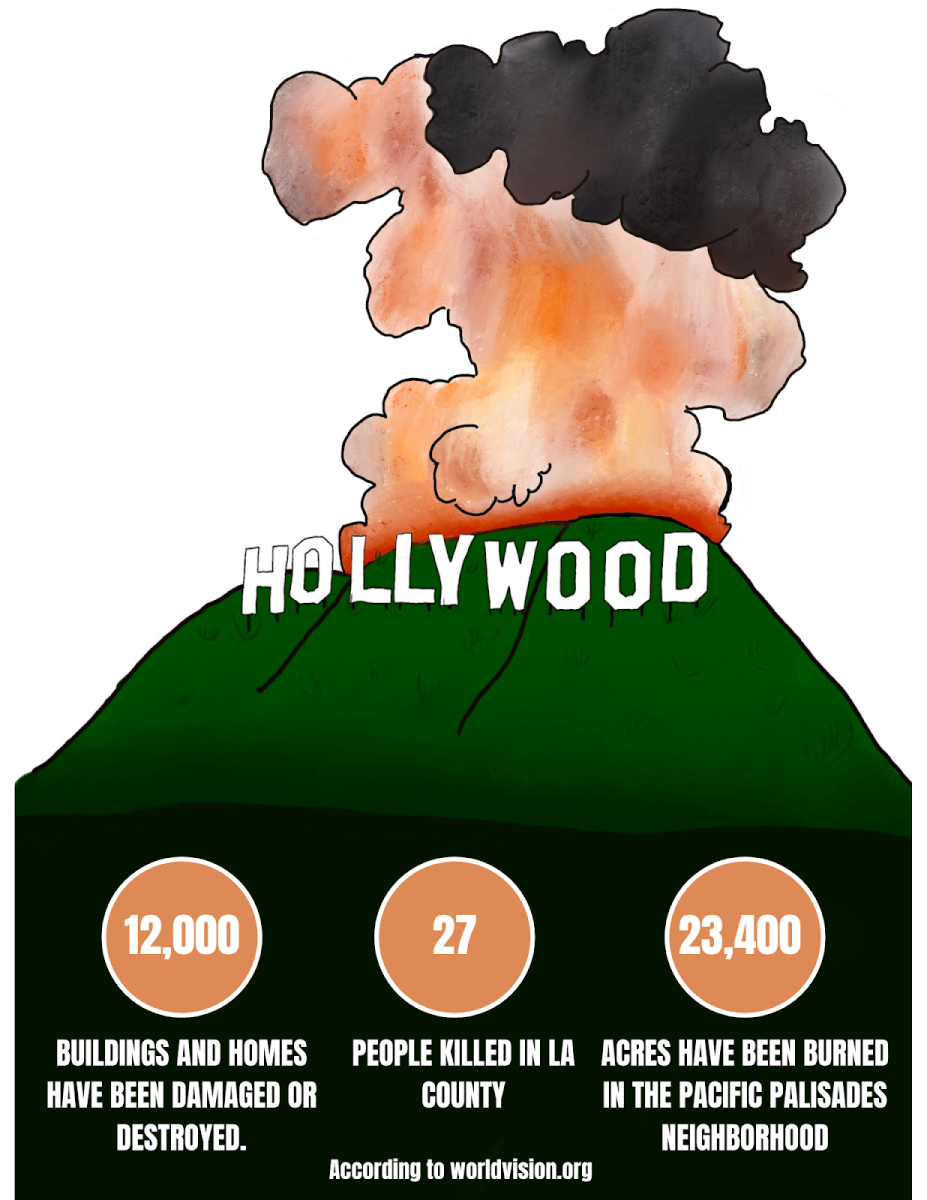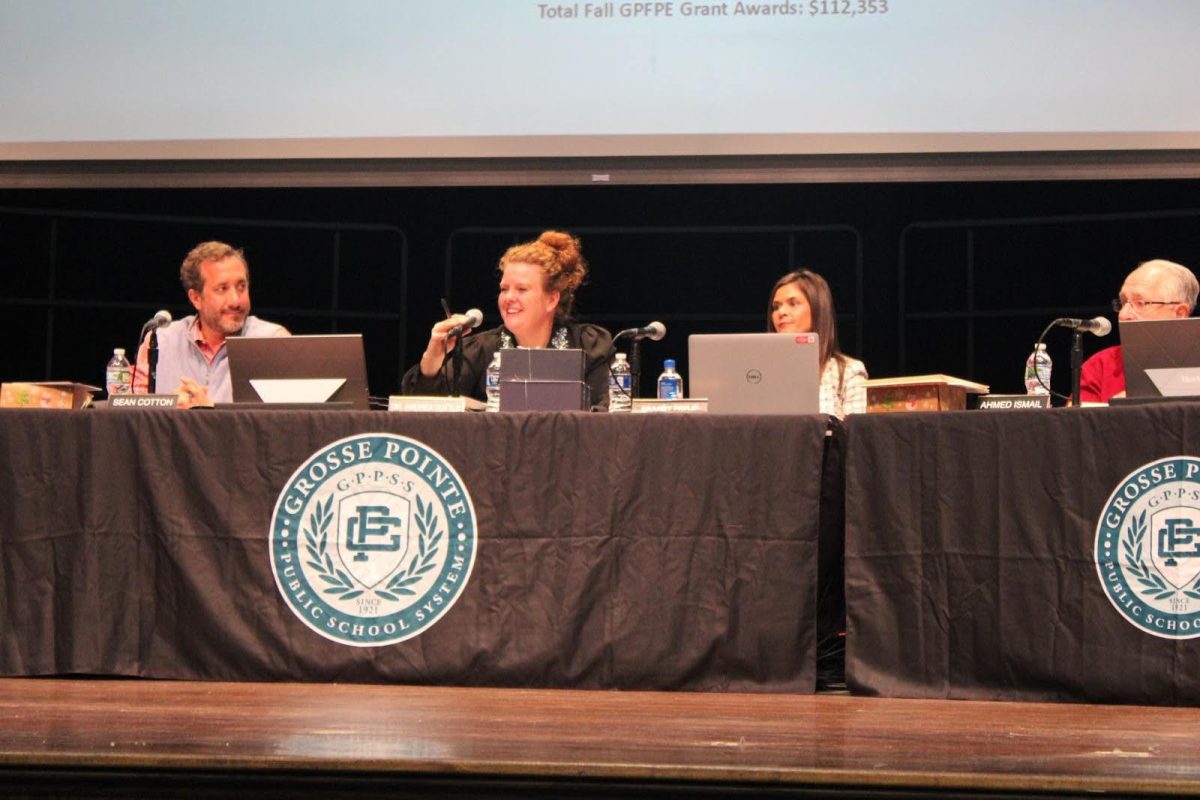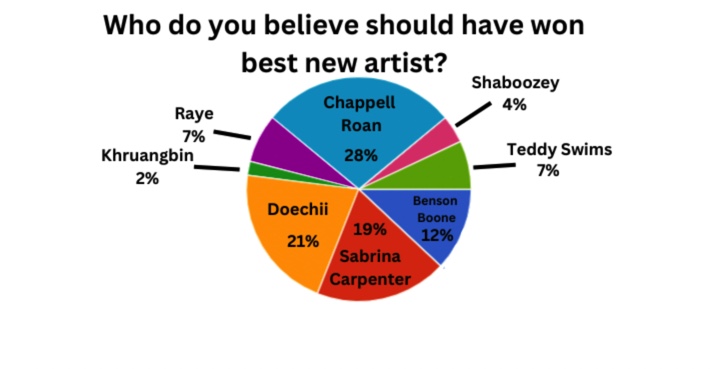In recent years, brain rot terms have exploded in popularity online, especially in Gen-Z and Gen Alpha. “Brain rot” is currently defined as “the deterioration of a person’s mental state as the result of overconsumption of material, now particularly online content, considered to be trivial or unchallenging, as well the things responsible for said deterioration,” according to Oxford University Press. In the modern day, it is nearly impossible to go onto social media without encountering words such as “skibidi” and “rizz,” words that have either no practical meaning or are derived from a real word. The widespread use of these words online has translated to students including them in their vocabulary in academic settings.
With so much brain rot present on social media apps, it is accessible to anyone with a phone. Furthermore, it can provide a comedic source of simulation for an idle mind. Junior Sarah Dragich sees people watching Youtube and scrolling Instagram often, and students hop on their phones any chance they get.
“Brain rot has impacted my interactions in school because a lot of people are just on their phones and don’t really know how to focus in class,” Dragich said.
As someone who has frequently noticed these words being used in student conversations, English teacher Paul Golm has started incorporating them into lessons to connect with students to further their learning.
“I definitely have been picking that up in discussions between students,” Golm said. “I learn from the students, and I hope they pick up from me. I feel like I learn as many words from students as I hope they learn from me.”
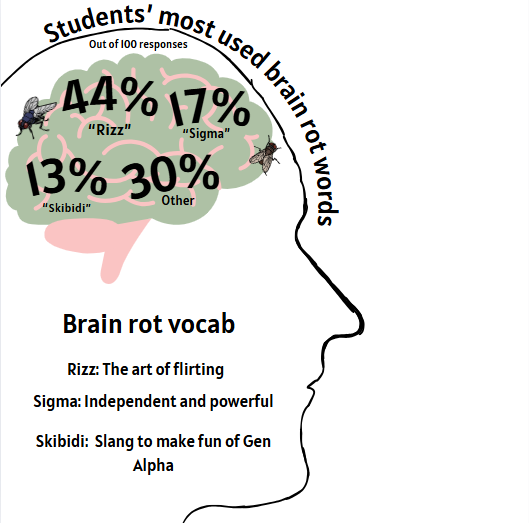
Golm is not the only one who has noticed this language change. Neurologist Joseph Kassa believes that a shift in language is a completely normal phenomenon, but students should be wary that if we continue to use these brain rot words, the original words, such as “charisma,” which has now turned into “rizz,” may be left behind.
“The English language is always changing, from generation to generation,” Kassa said. “That’s why we have different terminology and things like that that we use now that we didn’t use back in the 1950s and 60s, but I just feel like if you don’t use more intellectual language and you use these other ‘brain rot’ words, I think you just lose the old terminology as time goes on.”
Brain rot hasn’t always been so popular. Memes over time have evolved from images to full videos, and it hasn’t always been specifically for Gen-Z and Gen Alpha, but when a large group of people—say, a generation—all have something in common, a unique language can be formed.
“You see these food videos where a guy will eat a boot full of beans,” Golm said. “People do gross stuff, and people don’t know why but they can’t turn their heads away. I guess that’s the brain rot I’m thinking of. There are certain languages connected to a lot of these memes and styles of videos, and so we start to adopt this language and it seeps into our own discourse outside of the internet. I don’t think the language is rotting, I think our behaviors are rotting.”
Many people get lost in their devices while consuming brain rot and seemingly can’t pull themselves away from the screen. Kassa believes this is due to the susceptibility of a child’s mind and the need for happiness today.
“There’s a surge of dopamine that occurs—your reward chemical that’s synthesized in your brain,” Kassa said. “With a lot of these smaller words, not as intelligent words—it’s all coming from your reward center, not being as stimulated as looking at things or reading things are more intellectually stimulating.”
With brain rot growing as rapidly as it is and causing kids to be even more tied to their phones, Dragich believes it will detriment younger generations going forward.
“I think it’s bad because then people don’t really know how to interact with people and they’re not going to succeed in the future,” Dragich said.


